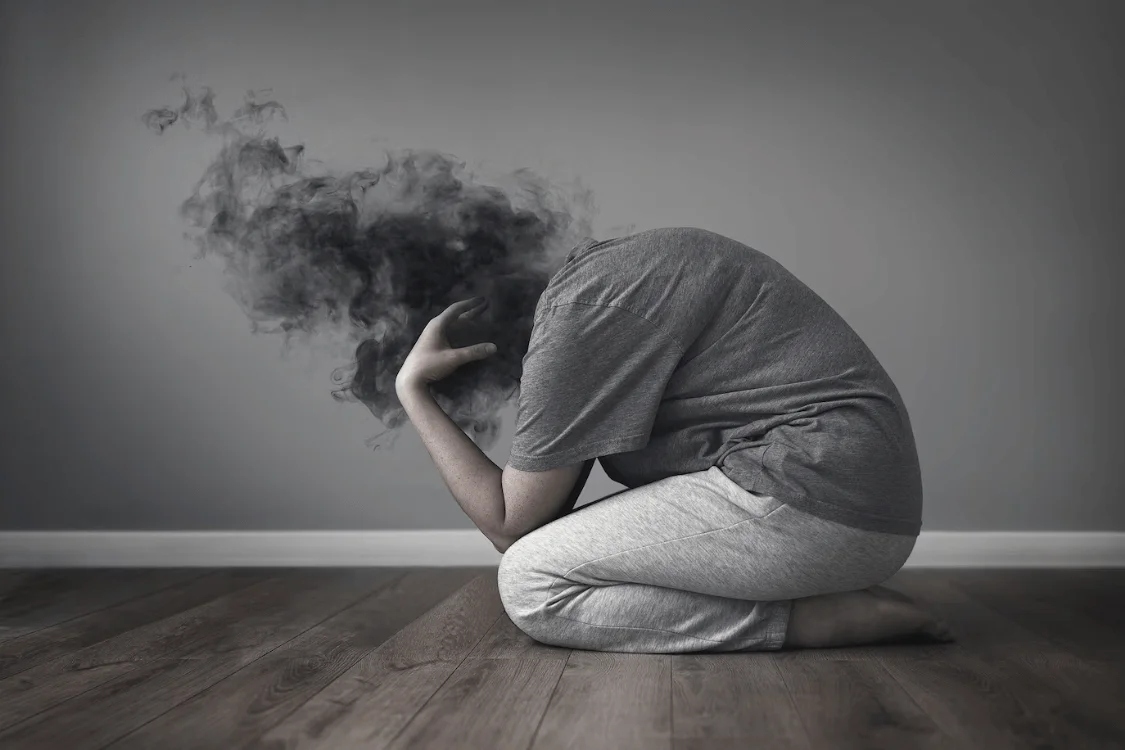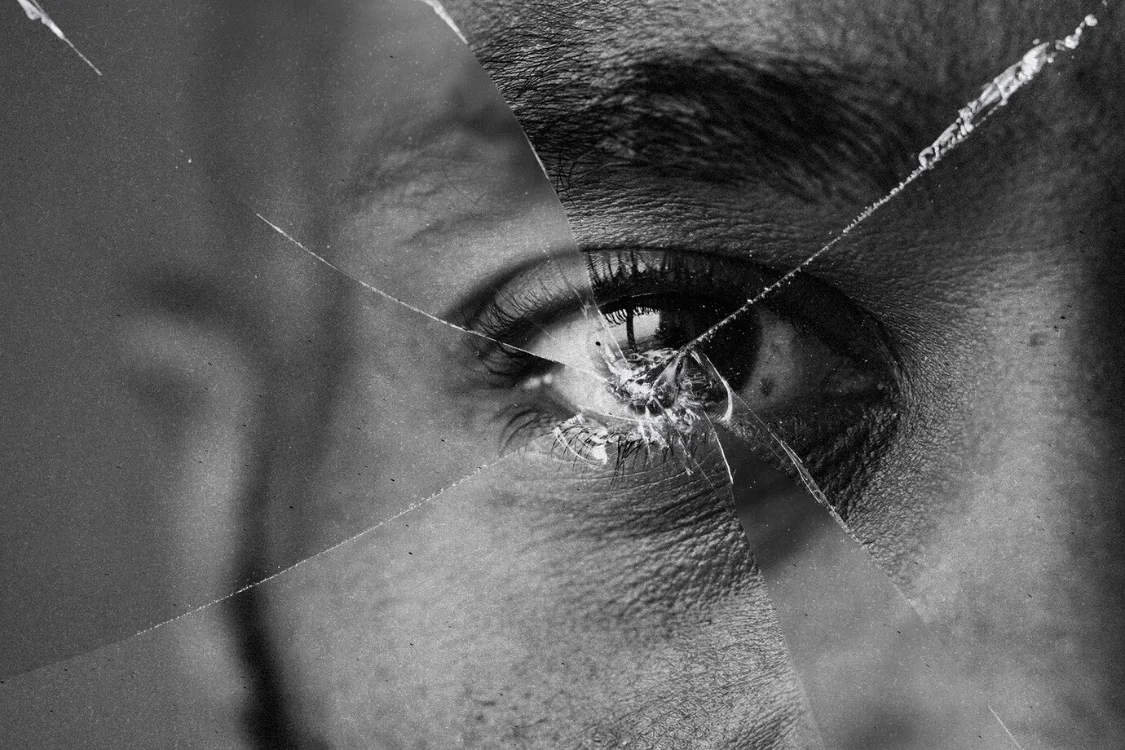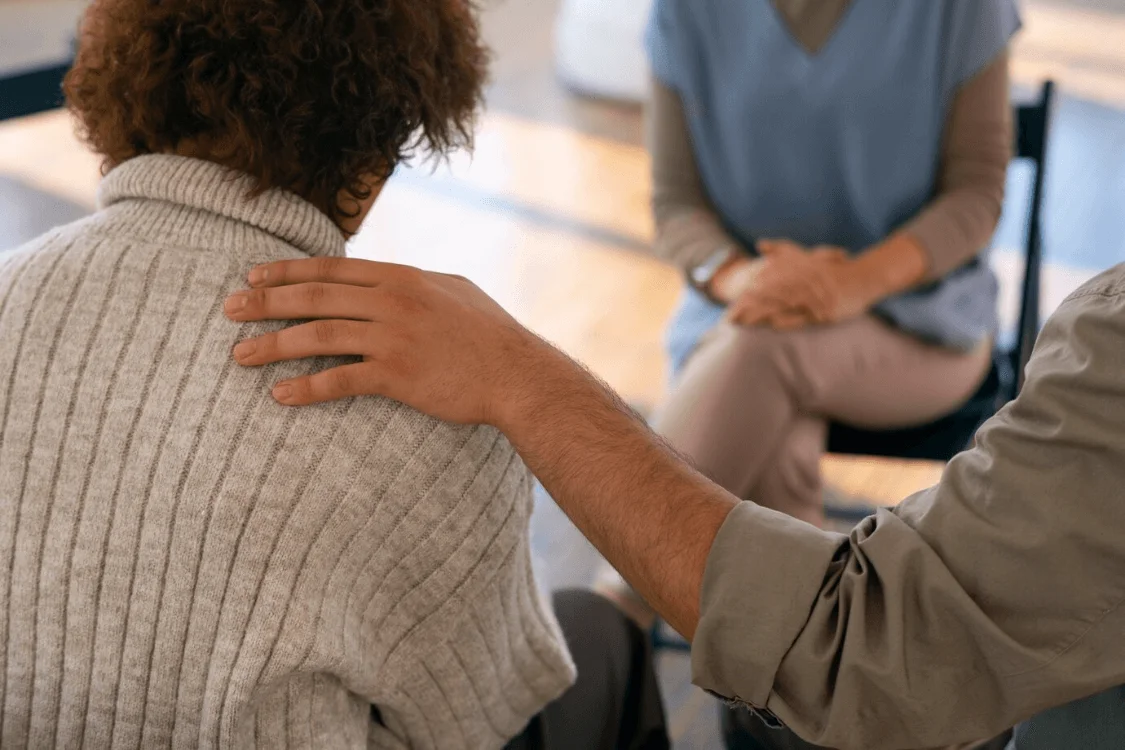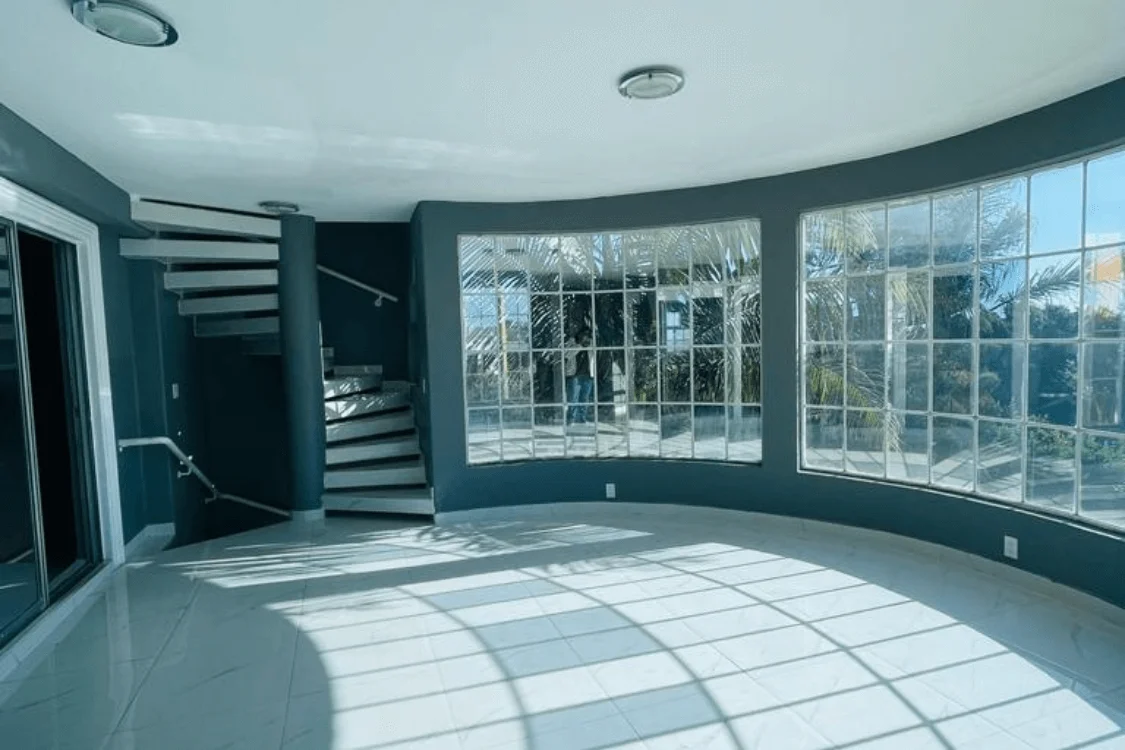
Depression Treatment
Depression transcends mere sadness – it is a profound mental health condition that significantly impacts how a person feels, thinks, and manages daily activities. It can lead to severe depression symptoms that disrupt sleep, appetite, and the ability to enjoy life.
At Twilight Recovery Center, we recognize that effective treatment must address the psychological and physiological facets of depression comprehensively.
It’s critical to understand that while the challenges are significant, depression is treatable, and our targeted therapies are designed to help patients reclaim their lives and joy.

Depression is Common in the U.S

Depression significantly impacts public health in the United States, affecting approximately 7% of adults annually. More than 16% -roughly one in six – will experience depression at some point in their lifetime. However, the actual prevalence is likely higher as many individuals do not seek help and remain undiagnosed.
In children, about 4.4% are diagnosed with depression. For adolescents, around 4.1 million aged 12 to 17 have experienced a major depressive episode, with significant treatment gaps; about 60% do not receive treatment for depression. The rates of depression among adolescents are rising, with more than 5% of children aged 6 to 17 reported to have current anxiety or depression.
Additionally, nearly one-third of adults were dealing with co-occurring mental health and substance use disorders, underscoring the critical need for integrated treatment approaches like those provided at Twilight Recovery Center.
These statistics highlight a critical need for accessible treatment options and public health initiatives to reduce stigma and improve care availability. Facilities like ours prioritize diagnosing and treating depression to improve quality of life.
Symptoms of Depression
Depression affects millions worldwide and manifests through various symptoms that can impact every aspect of an individual’s life.
Understanding these symptoms is crucial for those experiencing them and their loved ones, as early recognition and treatment can significantly improve outcomes.
Persistent sadness
This core symptom is a profound, unrelenting sadness or a feeling of emptiness.
Loss of interest
An obvious decline in interest or pleasure in all or most activities, significantly affecting one’s quality of life.
Changes in appetite and weight
Fluctuations in weight and appetite can vary significantly; some people with depression experience increased appetite, while others lose their appetite altogether.
Sleep disturbances
Insomnia or hypersomnia are common, with individuals either struggling to sleep or sleeping excessively.
Fatigue or loss of energy
A pervasive feeling of tiredness or a lack of energy is common, making even daily tasks seem laborious.
Feelings of worthlessness or excessive guilt
They can be a significant emotional burden, often disproportionate to the situation.
Difficulty thinking or concentrating
Many experience a diminished ability to think, concentrate, or make decisions.
Physical symptoms
Unexplained physical issues such as headaches or back pain are often reported.

Our treatment plans ensure that each client receives personalized care that addresses the symptoms and root causes of their conditions. We strive to empower our clients with the tools and knowledge necessary for long-term management and recovery from their mental health challenges.
Different Types of Depression
Depression manifests in various forms, each affecting individuals differently, but all requiring careful diagnosis and personalized treatment plans. We treat all types of depression, ensuring that our clients receive the care best suited to their unique needs.
Major Depressive Disorder (MDD)
Also called clinical depression, Major Depressive Disorder is characterized by persistent sadness and a significant disinterest in life activities. This debilitating mood disorder can interfere with daily functioning, causing challenges in personal and professional relationships and at home. Treatment involves a combination of medication, psychotherapy, and, potentially, electroconvulsive therapy for severe forms of depression.


Persistent Depressive Disorder (Dysthymia)
Persistent Depressive Disorder, or dysthymia, represents a chronically depressed mood that lasts for two years or more. Individuals may experience episodes of major depression along with less severe symptoms that can still significantly hinder their happiness and overall functioning.
Bipolar Disorder
Characterized by dramatic shifts in mood, energy, and activity levels, bipolar disorder includes periods of deeply depressive moods counterbalanced by phases of intense mania or hypomania. Managing bipolar depression often requires a sophisticated treatment strategy combining mood stabilizers, antidepressants, and psychotherapy.


Seasonal Affective Disorder (SAD)
This form of depression is triggered by the changing seasons, commonly beginning in the fall and continuing through winter, lifting during the spring and summer. Light therapy, talk therapy, and medication are effective treatments for managing SAD.
Depression with Psychosis
This severe form of mental disorder involves major depressive episodes alongside psychotic symptoms such as delusions or hallucinations, often themes of personal inadequacies or guilt. Treatment may include antipsychotic drugs, antidepressants, and psychotherapy to address both the emotional and psychotic symptoms.


Special Cases of Depression
- Perinatal depression: Encompasses both prenatal depression occurring during pregnancy and postpartum depression following childbirth. These can significantly impact maternal health and infant bonding.
- Premenstrual Dysphoric Disorder (PMDD): This is a severe form of PMS; PMDD includes intense emotional and physical problems that disrupt daily life and are typically treated with antidepressants, birth control pills, and lifestyle changes.
- Cyclothymic disorder: A milder form of bipolar disorder with chronic fluctuating moods, including brief periods of depression and hypomania, managed often with similar treatments used for bipolar disorder.
At Twilight Recovery Center, the diagnosis of anxiety and depression involves detailed assessments by health professionals, ensuring an understanding of each individual’s medical and psychological state. Our goal is to reduce the severity of depressive symptoms for all our clients.
Risk Factors for Depression: Who is Prone to It?
Depression affects individuals globally, regardless of age, gender, or socioeconomic status. Recognizing the risk factors is critical for early diagnosis of depression.
- Biological and health-related risk factors: Depression may be more likely in individuals with neurological conditions like Alzheimer’s or Parkinson’s due to changes in brain chemistry. Chronic conditions like stroke, multiple sclerosis, and chronic pain can disrupt daily life and increase depression risk.
- Psychological and environmental influences: Depression often coexists with other mental health disorders like anxiety, making symptoms more severe. It can also develop following traumatic events or ongoing stress from personal or professional challenges. Members of the LGBTQI+ community may face unique social stresses that elevate their risk for depression.
- Demographic and lifestyle factors: Depression is reported more frequently in women, possibly due to hormonal changes and societal pressures, while men may underreport and under-treat their symptoms. Lifestyle factors like poor diet, lack of exercise, and insufficient sleep are significant contributors to developing depression.
- Genetic factors: A family history of depression suggests a genetic predisposition, increasing susceptibility to the disorder among relatives.


Diagnosis and Treatment at Our Center
At Twilight Recovery Center, we treat depression by integrating medication management with psychotherapies alongside holistic approaches such as yoga and meditation. This comprehensive treatment protocol is designed to alleviate symptoms and support long-term recovery, helping individuals manage and overcome depression.
We provide personalized care that addresses the varying severity and forms of depression, ensuring that each client receives the specific support they need to improve their quality of life.
Our Treatments for Depression

Substance Detox and Residential Treatment
For individuals dealing with depression, particularly when compounded by substance abuse, our alcohol and drug detox programs provide the first step toward recovery. Following detoxification, clients may enter our residential or inpatient treatment programs, which are designed to offer intensive support and structured care, crucial for those experiencing severe symptoms of depression.

Outpatient Treatment for Depression
Recognizing the need for flexible treatment solutions, Twilight Recovery Center offers outpatient programs specifically tailored for those managing depression. These programs allow individuals to continue their professional and personal responsibilities while receiving consistent support to manage symptoms and prevent relapse.

Specialized Therapies for Depression
At the core of our treatment for depression are personalized therapeutic approaches. We offer individual therapy, group therapy, and family therapy- all tailored to address the complexities of depression.
Key therapies include Cognitive Behavioral Therapy (CBT) and Dialectical Behavior Therapy (DBT), known for their effectiveness in treating depressive disorders.
Additionally, EMDR Therapy is available to help clients process and recover from trauma-related depression. Holistic treatments, such as meditation and yoga, complement these therapies, supporting overall mental wellness and recovery.
Medication Treatments for Depression Symptoms
Medications may be used in combination with psychotherapy and other therapeutic interventions to manage and alleviate the symptoms of depression. At Twilight Recovery Center, we work closely with health professionals to develop personalized medication plans based on individual needs and the specific characteristics of their depression.
Antidepressant Medication
Antidepressants are commonly prescribed for depression. They work by altering the brain chemicals (neurotransmitters) involved in mood regulation, such as serotonin, norepinephrine, and dopamine.
The choice of antidepressant depends on the patient’s specific symptoms, medical history, side effects, and other medications they may be taking. Common types of antidepressants to ease depression include:
- Selective Serotonin Reuptake Inhibitors (SSRIs): These are known as the first line of treatment due to their relatively mild side effects and safety in case of overdose. Examples include fluoxetine (Prozac), sertraline (Zoloft), and citalopram (Celexa).
- Serotonin and Norepinephrine Reuptake Inhibitors (SNRIs): These are used for major depressive disorder and depression that do not respond to SSRIs. Examples include venlafaxine (Effexor) and duloxetine (Cymbalta).
- Tricyclic Antidepressants (TCAs): While effective, these medications are generally used as a secondary treatment due to their more significant side effects. Examples include amitriptyline and nortriptyline (Pamelor).
- Monoamine Oxidase Inhibitors (MAOIs): This medication is used for treating depression that does not respond to other treatments. Patients require a strict diet due to serious interactions with foods and other medications.


Special Cases and Additional Medications
- Treatment-resistant depression: For those who do not respond to traditional antidepressants, options like the intranasal medication esketamine (approved by the FDA) are available. This medication can provide rapid relief of symptoms for treatment-resistant depression.
- Augmentation strategies: Sometimes, antidepressants are combined with other medications to enhance effectiveness or counter side effects, including antipsychotics or mood stabilizers.
Starting an antidepressant requires careful consideration and regular monitoring by a medical professional to adjust dosages or medications as needed. Patients must communicate openly with their healthcare providers about their progress and any side effects they experience.
While antidepressants can significantly reduce symptoms, they are often more effective when combined with psychotherapy and a healthy lifestyle.
Tips for Preventing Depression
Preventing depression involves adopting a holistic approach that emphasizes both mental and physical health. Establishing a supportive network of family, friends, and community groups can help reduce isolation and provide emotional support.
Regular physical activities like walking or yoga release endorphins that improve mood and overall health. It’s also crucial to manage stress through mindfulness or deep breathing exercises that enhance resilience against depression.
Ensuring a balanced diet and sufficient sleep are vital for maintaining good health and preventing mood imbalances. Regular medical check-ups can help catch early signs of depression or related conditions, allowing for timely intervention. Educating yourself about depression’s symptoms and treatments can aid in early detection and effective management.
If signs of depression appear, seeking professional help promptly can prevent the condition from worsening. Different treatments may include psychotherapy, medications, or lifestyle adjustments. Additionally, finding joy in hobbies and practicing gratitude can improve mental health and resilience.
Adapting your environment to reduce stress, such as organizing your living space or increasing natural light, can also significantly prevent depression. By integrating these strategies, individuals can build a protective framework that promotes long-term mental well-being.
Depression is Different for Everyone: Get Personalized Care Today
If you or someone you know is struggling with depression, reach out to Twilight Recovery Center. Our holistic, patient-centered approach ensures that each client receives personalized, compassionate care. Contact us today to learn more about our depression treatment programs can help you or your loved one begin the path to recovery.


